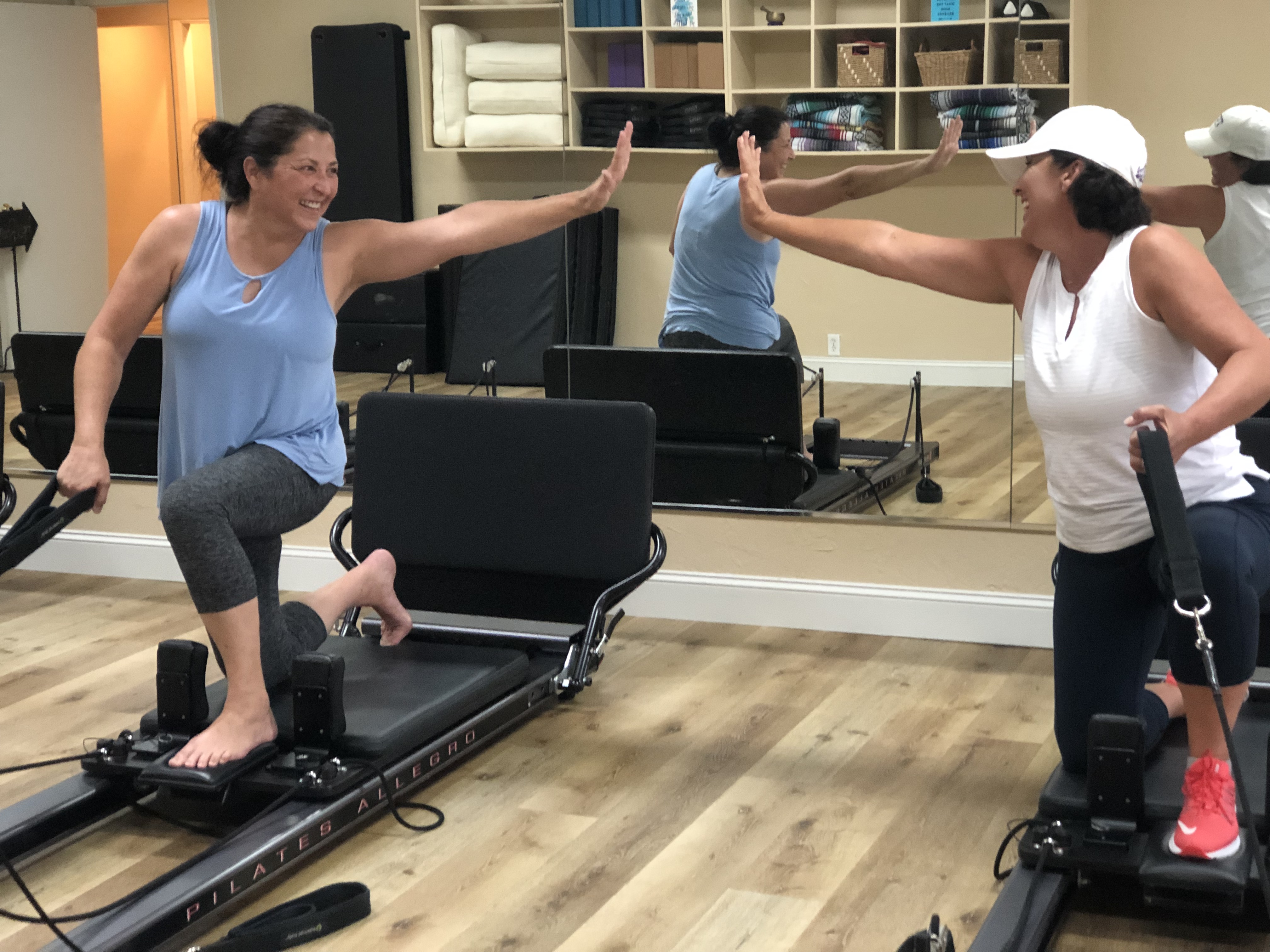
11 Jul How Pilates Benefits Your Mental Health
Since its creation in the 1920s, Pilates has been used around the world to increase muscle strength and tone, improve flexibility and posture, and lose weight. However more research is suggesting that Pilates also has a wide range of mental health benefits. Joseph Pilates believed that physical and mental health went hand in hand, which is why the Pilates method is both a physical and mental workout. His method focuses on correct alignment, control, breathing, flowing movement, and concentration. His precise movements focus on technique and control over repetition. Let’s look at some of the ways that Pilates has the potential to help improve mental health.
Using the breath to find mindfulness in movement
Breath is one of the most powerful tools in calming the mind and is utilized in a wide range of mental health practices, from yoga to mindfulness and Pilates. Similarly, breathing is one of Joseph Pilates’ 8 Principles of Pilates and is an essential component of all Pilates classes. Every Pilates exercise involves a particular breathing pattern which improves the effectiveness of the exercise, helps to supply oxygen to the muscles, removes waste products and prevents you from holding your breath. In focusing on your breath, the brain is not able to compile that “to do” list or focus on the afternoon schedule of picking up the kids, getting to swimming practice or what to have for dinner! Instead, Pilates directs your focus inward for the duration of the class, focusing on the present, feeling the muscles work and reconnecting with your body.
Stress Management and Relaxation
Pilates is also used widely as a way to reduce and cope with stress. Exercise can decrease ‘stress hormones’ like cortisol, and increase endorphins, your body’s ‘feel-good’ chemicals, giving your mood a natural boost. As a form of exercise, Pilates may also improve your ability to respond to and cope with stress, enhancing your stress resilience.
Improving Memory and Brain Training
When performing automated forms of exercise such as running on a treadmill, the body may be working but the brain is not actively engaged. This may lead to increased risk of injury and reduced exercise benefits. Pilates requires you to recruit both your body and mind simultaneously. When we learn a new exercise or modification, it challenges the brain to learn a new skill, keeping the mind engaged at all times.
In addition to this, exercise pumps blood to the brain, which should make you think more clearly. It increases the size of the hippocampus, the part of the brain responsible for memory. It also increases the connections between the nerve cells in the brain. This improves your memory and helps protect your brain against injury and disease.
A Tool in Treating Depression or Anxiety
Most research on exercise and mental health focuses on the possible benefits for sufferers of depression. Pilates may assist in the treatment of depression and anxiety by offering an opportunity to socialize, changing the levels of chemicals in the brain (serotonin, cortisol and endorphins), providing a distraction from negative thoughts, releasing stress, enhancing mindfulness and helping to create a self-care routine.
Since the body and mind are so closely linked, when your body feels better so, too, will your mind. So, let’s focus on getting our mental health in the same shape as our physical health.

